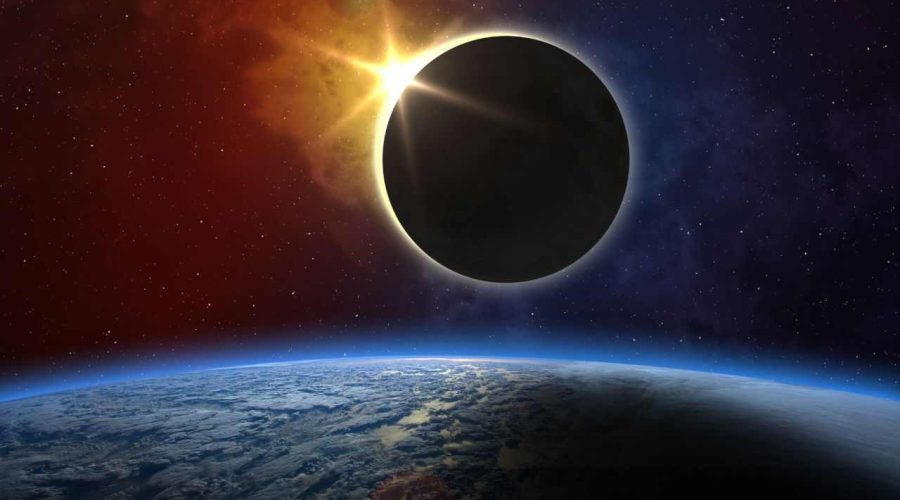Know these Indian Myths and Superstitions Around the Solar Eclipse: Must Read
Have you ever questioned “Why”? According to Hindu mythology, eclipses, or grahan, are bad omens.
The solar eclipse is a sign of all things bad since it causes the sun, which is revered as a vital component of the universe, to vanish. So it only seems sensible that a number of rituals are performed to lessen the impact of this natural occurrence.
Hindu mythology Behind Solar Eclipse
According to both the Bhagawat and Vishnu Puranas, the Samudra manthan is where the legend of eclipses first appeared in Hindu mythology. The Devas used the apsara Mohini to fool the Asuras out of their part of the “Amrit, or elixir of immortality”, when it was churned out of the ocean. Svarbhanu, one of the Asuras, assumed the form of a Deva and sat between the Sun and the Moon to sip the elixir.
When Vishnu drew nearer, the Sun and Moon showed that Svarbhanu was a demon. Svarbhanu, however, had already taken a sip of the elixir by this point. The demon’s head was promptly severed by Vishnu, but as it had already ingested some elixir, it had become immortal.
The head then swore vengeance on the Sun and Moon for depriving him of the elixir and became known as Rahu (the detached body became known as Ketu).
Rahu periodically overtakes and consumes the Sun and the Moon as a result. Rahu doesn’t have any hands to grip these two heavenly gods, hence the episode doesn’t last very long.
Protection and purification rituals during and after Eclipse.
Rahu Kaal is unquestionably regarded as being very unlucky. According to superstitions surrounding eclipses, dangerous forces are active during these times, hence extreme vigilance should be exercised at all times. Lack of sunlight can lead to a rise in bacteria and germs in the air, which can pollute individuals.
Following are some activities people do or refrain from during solar eclipses:
1. It is totally forbidden to worship or interact with deities at this time. During eclipses, even temple doors are typically kept closed. The idols are intended to be bathed with Ganga water to purify them when the eclipse is over.
2. During an eclipse, it is said that practising meditation, reciting hymns or mantras, and singing devotional music may shield you from any negative consequences.
3. According to the laws, no food may be prepared while the eclipse is occurring. Before the eclipse’s time, leftovers are consumed. To keep cooked food items safe, some Indians cover them with tulsi or Indian basil leaves.
4. Other activities that are forbidden during the eclipse include wearing makeup, sleeping, peeing, urinating, and defecating.
5. During eclipses, pregnant women are thought to be particularly vulnerable to evil spirits. In some parts of India, they are even forbidden from sitting with their legs crossed. They are also expected to refrain from tasks like cutting vegetables and sewing garments.
6. Following the eclipse, people are told to take a bath and change into new clothes. The harm caused by the eclipse is also thought to be washed away by sprinkling Ganga water or having a bath in the river Ganga.

